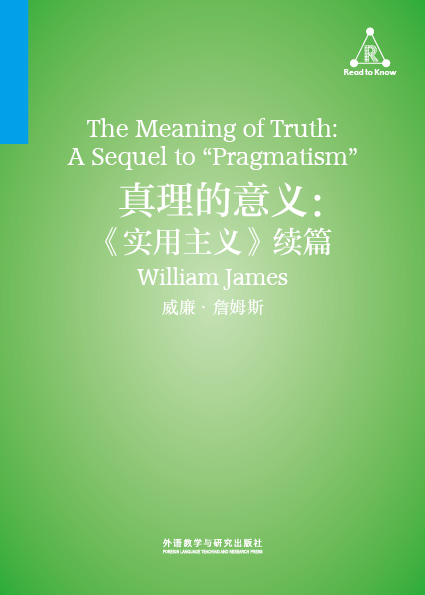经验是一种历程,没有任何一种观点可以宣称是真理的最后篇章。
《真理的意义:<实用主义>续篇》是威廉·詹姆斯的重要哲学著作。在詹姆斯的代表作《实用主义》一书出版后,不少人对实用主义的学说关于真理问题的叙述提出了批评。《真理的意义》一书就是为驳斥这些批评意见,特别是反驳布拉德雷、席勒等人的攻击所作的回复。该书的中心是讨论真理问题。
The work of a leading figure in the transition from a predominantly European-centered 19th-century philosophy to a new American philosophy, this volume presents a full and definitive expression of the pragmatist epistemology. It encompasses everything James had hitherto written on the theory of knowledge, including later polemic and expository contributions, and replies to previous criticism.
- 序
- 第一章 认知的功能
- 第二章 印度老虎
- 第三章 人道主义与真理
- 第四章 认识者与被认识者的关系
- 第五章 人道主义的本质
- 第六章 再谈真理
- 第七章 普拉特教授论真理
- 第八章 实用主义对真理的阐释及其误解者
- 第九章 真理一词的意义
- 第十章 尤利乌斯·恺撒的存在
- 第十一章 绝对与勤勉的生活
- 第十二章 赫伯特教授论实用主义
- 第十三章 抽象主义和“相对主义”
- 第十四章 两位英国批评者
- 第十五章 对话
- Preface
- Chapter I The Function of Cognition
- Chapter II The Tigers in India
- Chapter III Humanism and Truth
- Chapter IV The Relation Between Knower and Known
- Chapter V The Essence of Humanism
- Chapter VI A Word More About Truth
- Chapter VII Professor Pratt on Truth
- Chapter VIII The Pragmatist Account of Truth and Its Misunderstanders
- Chapter IX The Meaning of the Word Truth
- Chapter X The Existence of Julius Caesar
- Chapter XI The Absolute and the Strenuous Life
- Chapter XII Professor Hébert on Pragmatism
- Chapter XIII Abstractionism and "Relativismus"
- Chapter XIV Two English Critics
- Chapter XV A Dialogue
- 书评 写书评
- 笔记
-
书评加载中...













 京公网安备 11010802032529号
京公网安备 11010802032529号
笔记加载中...